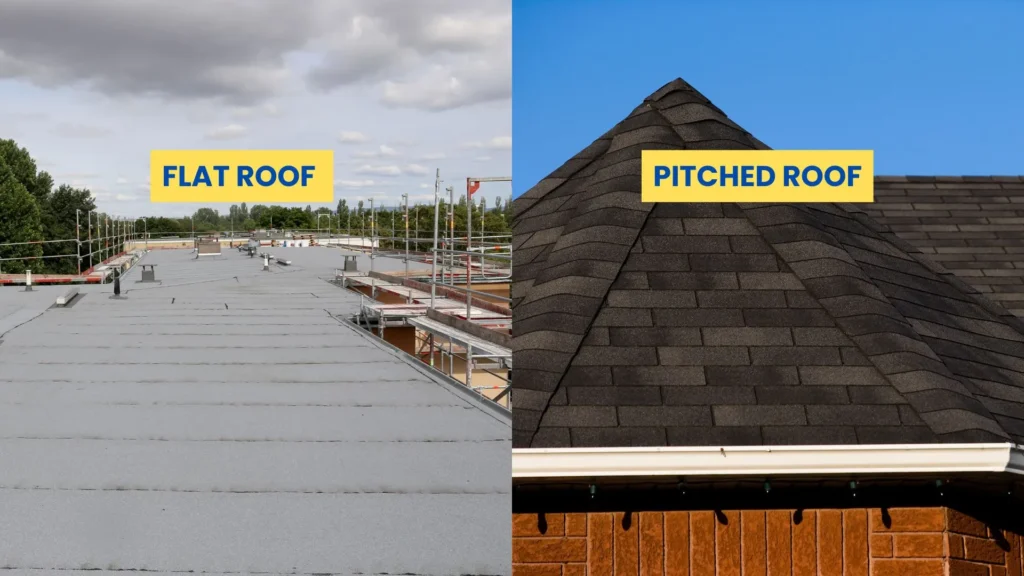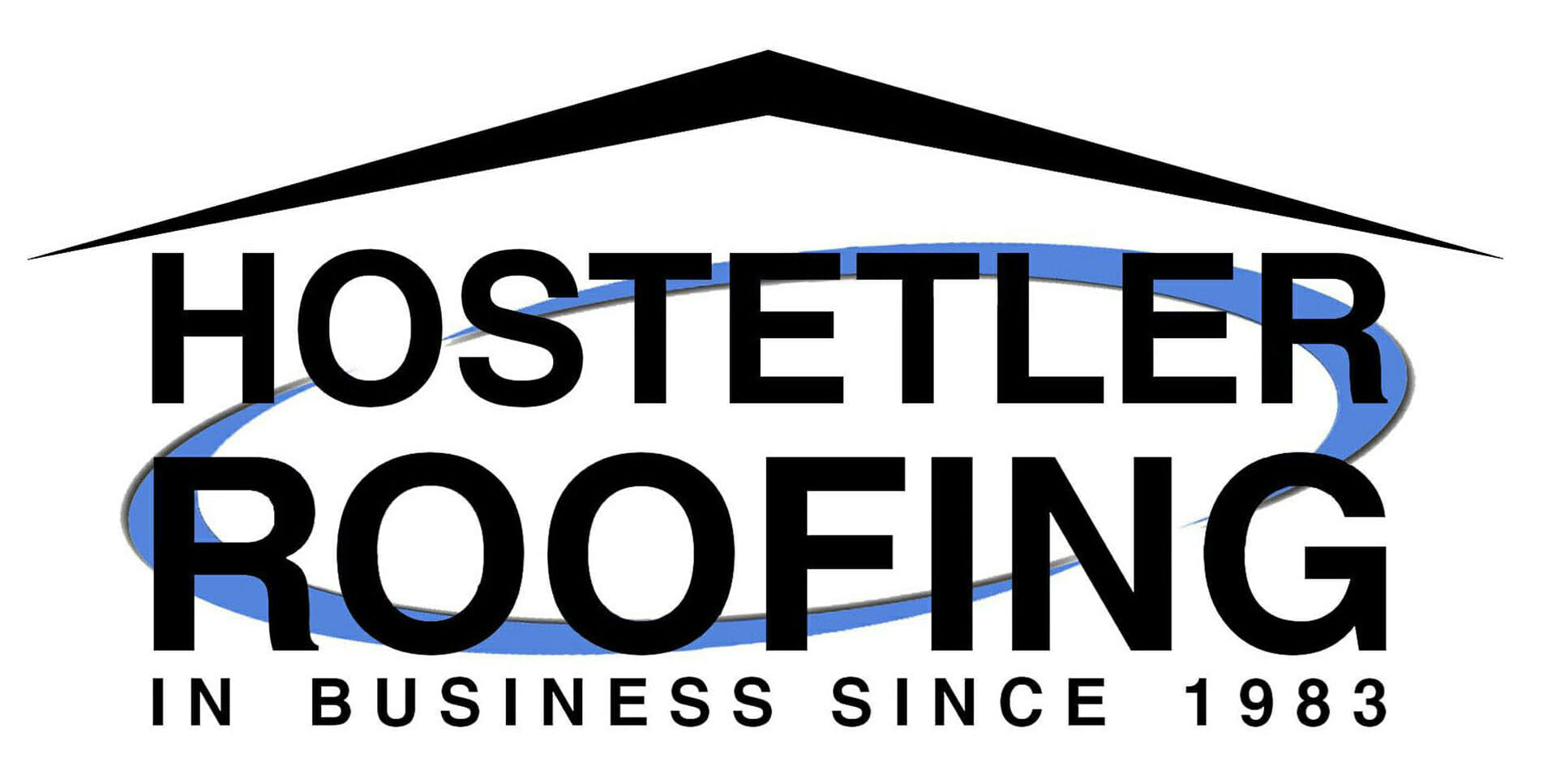
If you’re a business owner looking to build or replace your commercial roof, one of the first decisions you’ll face is this: Should you go with a flat roof or a pitched roof?
Both have their place, and as a local commercial roofing contractor in Nashville, Arkansas, I’ve worked on everything from flat retail roofs to steep church steeples. In this post, we will walk you through the pros and cons of each option so you can make the best decision for your business.
Let’s take a closer look at flat roofs vs. pitched roofs for commercial buildings.
What Is a Flat Roof?
Despite the name, a flat roof isn’t completely flat—it has a slight slope (usually 1/4 inch per foot) to allow for drainage. Flat roofs are commonly used in commercial and industrial buildings thanks to their practicality and cost-effectiveness.
Key Features:
- Low pitch (almost level)
- Typically made with materials like TPO, EPDM, PVC, or modified bitumen
- Allows space for HVAC units, solar panels, and roof access
Pros of Flat Roofs:
- Cost-Effective Installation: Less labor and materials required than pitched roofs.
- Easier Access: Safer for maintenance crews, HVAC techs, and inspections.
- Space Efficiency: Great for equipment placement and potential rooftop use.
Cons of Flat Roofs:
- Drainage Issues: Standing water is a common problem if the roof isn’t installed properly.
- Shorter Lifespan: Flat roofing materials typically last 15–30 years.
- More Maintenance: You’ll need to inspect and clean your roof more frequently.
According to the National Roofing Contractors Association (NRCA), regular inspections and timely repairs are essential to extending the lifespan of a flat roof system.
What Is a Pitched Roof?
A pitched roof has a noticeable slope, usually above 4:12 pitch (that’s a 4-inch rise for every 12 inches of run). While more common in residential structures, pitched roofs are also used in churches, schools, and even some retail buildings.
Key Features:
- Steeper slope for better water runoff
- Can be covered with shingles, metal panels, tile, or slate
- Visibly distinct profile and architectural appeal
Pros of Pitched Roofs:
- Superior Drainage: Water and snow runoff more efficiently.
- Longer Lifespan: Pitched roofs often last 30–50+ years, depending on the material.
- Curb Appeal: Offers more design flexibility and professional appearance.
Cons of Pitched Roofs:
- Higher Cost: Requires more materials and labor than flat roofs.
- Difficult Access: Not as safe or convenient for equipment maintenance.
- Design Limitations: Not always suitable for large commercial facilities or modern architecture.
Flat Roof vs. Pitched Roof: A Quick Comparison
| Feature | Flat Roof | Pitched Roof |
| Cost | Lower | Higher |
| Drainage | Moderate (requires maintenance) | Excellent |
| Lifespan | 15–30 years | 30–50+ years |
| Access | Easy | Harder |
| Aesthetics | Modern, utilitarian | Classic, architectural |
| Best For | Warehouses, offices, retail stores | Churches, schools, upscale retail |
Which Is Right for Your Business?
Let’s narrow it down with a few questions:
1. What kind of building do you own?
- For retail shops, warehouses, and offices, flat roofs make sense due to cost and utility.
- For churches, schools, or businesses in high-visibility areas, pitched roofs offer a more polished look.
2. What’s your long-term maintenance plan?
- Flat roofs need regular inspections to stay leak-free. If you’re okay with seasonal upkeep, it’s a practical option.
- Pitched roofs require less frequent maintenance but cost more upfront.
3. Are you placing equipment on your roof?
- Flat roofs are ideal for HVAC units, solar panels, and walkways.
- Pitched roofs can’t easily accommodate that kind of setup.
What About Arkansas Weather?
In Nashville and the ArkLaTex region, we see our share of heavy rain, hail, and heat. Flat roofs need proper drainage systems and high-quality materials to hold up, especially during storm season. Pitched roofs shed water naturally, which can give you extra peace of mind during severe weather events.
That’s why it’s so important to choose a roofing contractor who understands the local climate and can recommend the right system for your building.
Work With a Local Roofing Contractor Who Gets It
At Hostetler Roofing, we’ve been helping business owners across Nashville, Arkansas, and the ArkLaTex region make smart roofing decisions for years.
Whether you need a TPO flat roof for your strip mall or a metal pitched roof, we’ll walk you through every option—honestly and clearly—so you can feel confident in your investment.
Call Today for a Free Commercial Roof Consultation
We’re here to answer your questions, inspect your roof, and help you decide between a flat or pitched roof based on your building’s needs and your budget.
Call Hostetler Roofing at (870) 557-5686 your trusted commercial roofing contractor in Nashville, Arkansas.
You May Also Like To Read: Standing Seam or Corrugated Metal Roofing: Which Is Best for Your Property?

